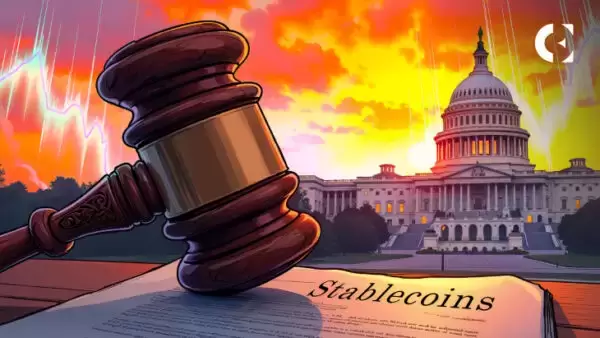 |
|
 |
|
 |
|
 |
|
 |
|
 |
|
 |
|
 |
|
 |
|
 |
|
 |
|
 |
|
 |
|
 |
|
 |
|
由生成式人工智慧功能驅動的人工智慧聊天機器人在訓練過程中使用了大量受版權保護的作品,因此面臨版權侵權問題。新聞機構、作家和藝術家要求對其創作的使用進行補償,這些聊天機器人使用這些創作來製作有競爭力的內容。

AI Chatbots Entangled in Copyright Quagmire over Artistic Mimicry
人工智慧聊天機器人陷入藝術模仿的版權泥潭
In the relentless pursuit of becoming the most transformative technological force since the advent of the internet, AI chatbots such as ChatGPT have voraciously consumed an immeasurable trove of human creativity, ranging from poignant poetry and captivating novels to captivating movie scripts and mesmerizing photo essays. However, this insatiable appetite has inadvertently ignited a contentious copyright battle with the very artists whose works have been ingested and regurgitated by these artificial intelligence (AI) systems.
在不懈追求成為自網路出現以來最具變革性的技術力量的過程中,ChatGPT 等人工智慧聊天機器人貪婪地消耗了人類無數的創造力,從淒美的詩歌和引人入勝的小說到引人入勝的電影劇本和令人著迷的攝影文章。然而,這種貪得無厭的胃口無意中引發了一場有爭議的版權戰,而這些藝術家的作品被這些人工智慧 (AI) 系統攝取和反芻。
Bloomberg, in a comprehensive report, unveils the alarming extent to which AI chatbots have cannibalized human-generated content. These AI juggernauts have relentlessly devoured millions of songs, beat poetry, draft contracts, movie scripts, photo essays, and novels from the 19th century, leaving a trail of copyright infringements in their wake. The consequences of this unbridled consumption are now being felt as news organizations, writers, music publishers, and other copyright holders demand a share of the profits generated by chatbots trained on their protected works.
彭博社在一份綜合報告中揭示了人工智慧聊天機器人蠶食人類生成內容的驚人程度。這些人工智慧巨頭無情地吞噬了 19 世紀的數百萬首歌曲、詩歌、合約草稿、電影劇本、攝影隨筆和小說,留下了一系列侵犯版權的痕跡。隨著新聞機構、作家、音樂出版商和其他版權所有者要求分享受其受保護作品訓練的聊天機器人所產生的利潤,人們現在已經感受到了這種肆無忌憚的消費的後果。
The damning evidence against AI chatbots is undeniable. Bloomberg meticulously documents the production of texts, graphics, and audio by ChatGPT and its ilk, all of which rival the quality of human-generated content. However, this newfound ability comes at a steep cost: the unauthorized exploitation of copyrighted works. To achieve their uncanny mimicry, AI chatbots have voraciously consumed vast quantities of human-generated information, meticulously identifying patterns and shamelessly regurgitating them as their own.
針對人工智慧聊天機器人的確鑿證據是不可否認的。 Bloomberg 細緻地記錄了 ChatGPT 及其同類產品的文字、圖形和音訊的製作,所有這些都可以與人類生成的內容的品質相媲美。然而,這種新發現的能力付出了高昂的代價:未經授權利用受版權保護的作品。為了實現不可思議的模仿,人工智慧聊天機器人貪婪地消耗了大量人類生成的信息,仔細地識別模式,並無恥地把它們當作自己的模式。
The legal storm surrounding AI chatbots has been brewing for some time. Microsoft and OpenAI, the companies behind ChatGPT, have already been targeted by a copyright infringement lawsuit filed by The New York Times. The prestigious news organization alleges that its written works have been brazenly utilized without authorization by the companies behind ChatGPT and other well-known AI systems. The complaint, filed in a Federal District Court in Manhattan, accuses automated chatbots that were trained on millions of articles published by The Times of now posing a direct threat to the news outlet's reputation as a reliable source of information.
圍繞人工智慧聊天機器人的法律風暴已經醞釀了一段時間。 ChatGPT 背後的公司微軟和 OpenAI 已經成為《紐約時報》提起的版權侵權訴訟的目標。這家著名的新聞機構聲稱,其書面作品在未經授權的情況下被 ChatGPT 和其他知名人工智慧系統背後的公司公然使用。該訴狀向曼哈頓聯邦地方法院提起,指控自動聊天機器人接受了《泰晤士報》發表的數百萬篇文章的訓練,現在對新聞媒體作為可靠資訊來源的聲譽構成了直接威脅。
The New York Times case has ignited a crucial debate: can AI be considered a trustworthy source of information? For news organizations, ensuring the credibility of their sources is paramount. However, with AI tools and bots increasingly attempting to mimic journalistic organizations, the question arises: are they obtaining information from legitimate sources? The case has also brought to light the contentious issue of utilizing versus copying data. The Times is just one of many copyright holders who have filed lawsuits against tech companies for allegedly exploiting their works for AI training. Other copyright holders include groups of writers, graphic artists, and music publishers. Tech giants, on the other hand, maintain that these cases jeopardize the multitrillion-dollar growth potential of the industry.
《紐約時報》的案件引發了一場關鍵辯論:人工智慧可以被視為值得信賴的資訊來源嗎?對於新聞機構來說,確保消息來源的可信度至關重要。然而,隨著人工智慧工具和機器人越來越多地試圖模仿新聞組織,問題出現了:他們是否從合法來源獲取資訊?該案還揭示了利用數據與複製數據的爭議問題。 《紐約時報》只是眾多對科技公司提起訴訟的版權所有者之一,這些公司涉嫌利用其作品進行人工智慧訓練。其他版權所有者包括作家、圖形藝術家和音樂出版商團體。另一方面,科技巨頭堅稱這些案件危及了該行業數萬億美元的成長潛力。
The copyright quagmire surrounding AI chatbots is a complex and multifaceted issue with far-reaching implications for the future of creativity, innovation, and intellectual property rights. As AI continues to evolve and its capabilities expand, it is imperative to establish clear guidelines and legal frameworks that protect the rights of artists and ensure the ethical use of their works. Only then can we harness the transformative power of AI while safeguarding the integrity of human creativity.
圍繞人工智慧聊天機器人的版權泥潭是一個複雜且多方面的問題,對創造力、創新和智慧財產權的未來具有深遠的影響。隨著人工智慧的不斷發展和其能力的擴展,必須建立明確的指導方針和法律框架來保護藝術家的權利並確保其作品的道德使用。只有這樣,我們才能利用人工智慧的變革力量,同時維護人類創造力的完整性。
免責聲明:info@kdj.com
所提供的資訊並非交易建議。 kDJ.com對任何基於本文提供的資訊進行的投資不承擔任何責任。加密貨幣波動性較大,建議您充分研究後謹慎投資!
如果您認為本網站使用的內容侵犯了您的版權,請立即聯絡我們(info@kdj.com),我們將及時刪除。
-

-

- 隨著鯨魚的積累,比特幣(BTC)所有權動態變化,較小的持有人卸載
- 2025-04-03 10:20:12
- 來自加密分析公司玻璃節的數據揭示了比特幣(BTC)所有權動態的重大變化。
-

-

- 中國在其東北發現大量的1,000噸金押金
- 2025-04-03 10:15:21
- 地質學家宣佈在中國東北地區發現了大量1,000噸金礦床。
-

-

-

-

- 以太坊(ETH)再次處於眾人矚目的焦點,因為技術指標表明了可能的周轉方式。
- 2025-04-03 10:05:13
- ETH目前為1900美元,分析師表明,如果資產可以收回最重要的阻力水平,則可能會出現牛市。
-






























































